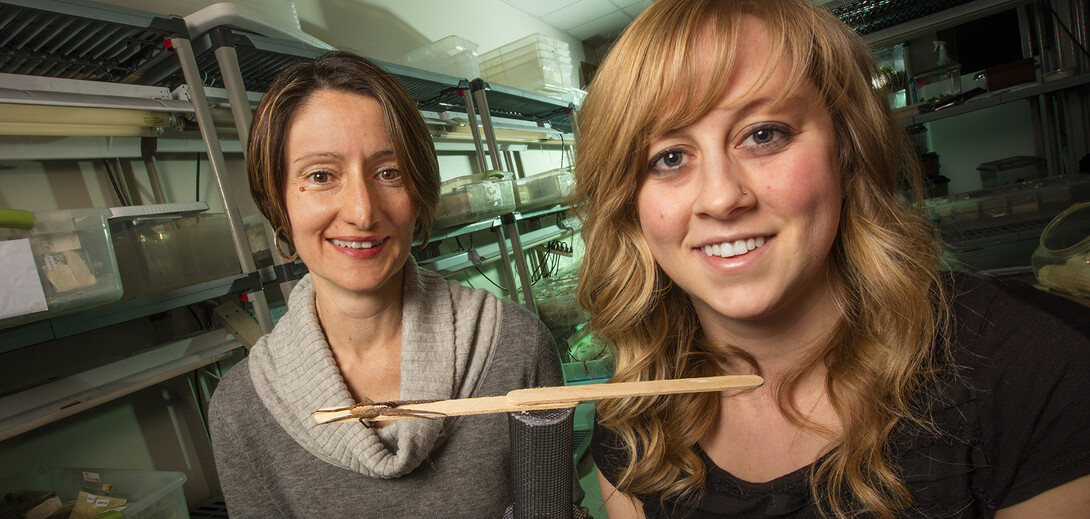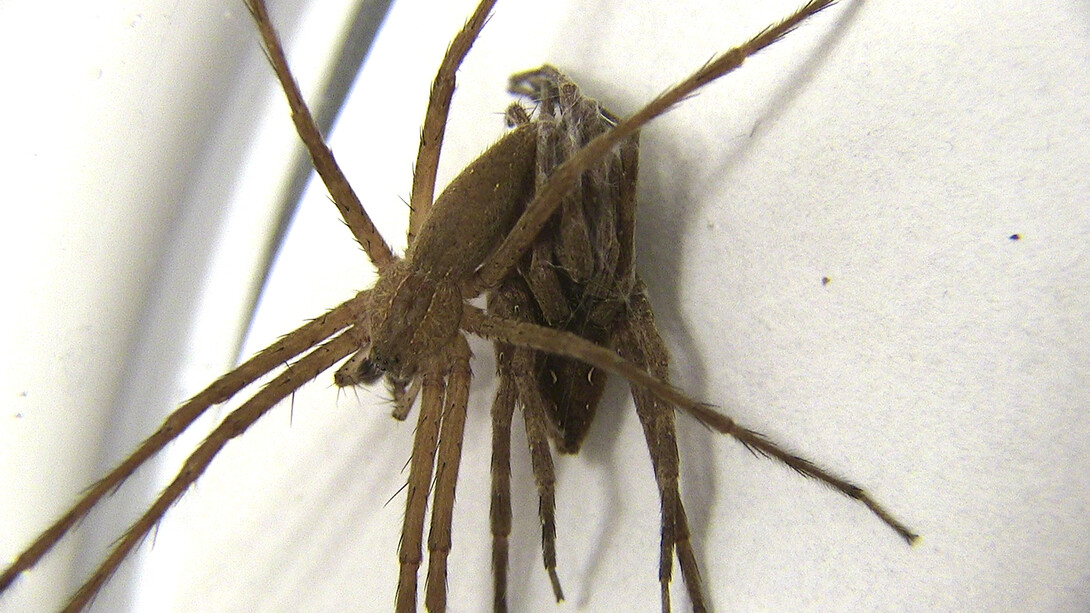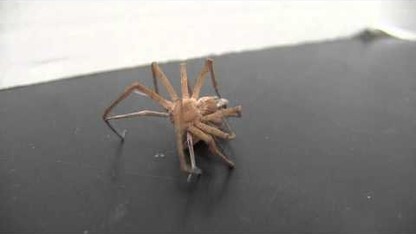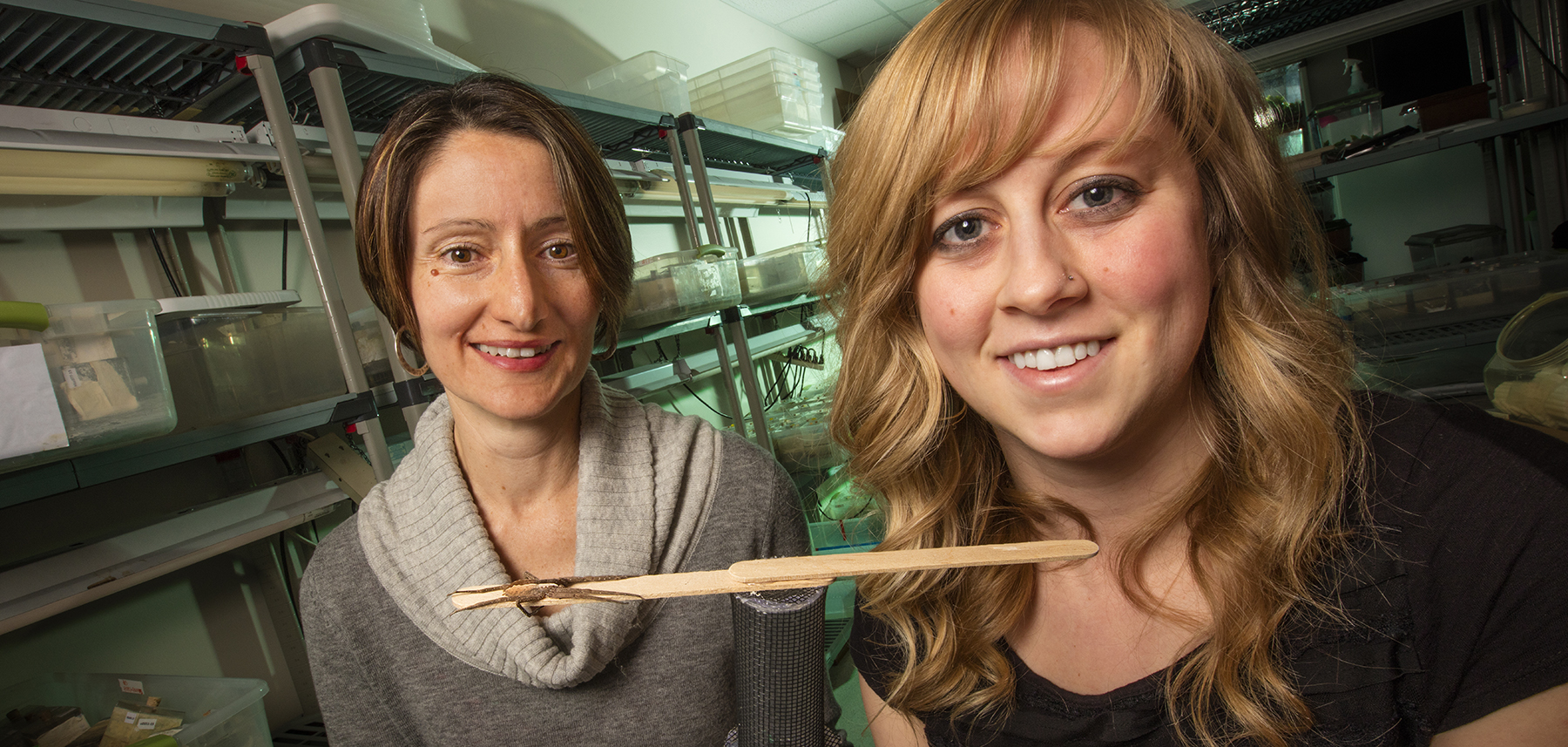
Male nursery-web spiders have good reason to practice a very specific brand of safe sex, according to a new study from UNL biologists.
The study shows that the male spiders have transformed silk and bondage from elements of foreplay into a life-saving technique that can keep them from becoming post-sex dessert for their female mates.
The larger female spiders of the species Pisaurina mira will often attempt to cannibalize their mates for sustenance after the males deposit their sperm. Yet before or even during their sexual encounters, males have been known to tightly bind the females’ forelegs with silk using organs known as spinnerets. Though researchers have generally considered this behavior a survival technique, none had ever tested its effectiveness.
Alissa Anderson and Eileen Hebets did just that by applying spinneret-blocking dental silicone to half of the male spiders they collected. The duo found that only 10 percent of the silk-deprived males managed to avoid becoming a meal, compared with about 70 percent of the males allowed to restrain their female partners.
The study also reported that the silk-wrapping spiders were more likely to insert their sperm-carrying pedipalp twice rather than just once, which the authors suspect might lead to greater sperm transfer and a better chance of fertilization.
“It’s an area (of study) that people often refer to as ‘sexual conflict,’ where what’s best for the female may not be best for the male, and vice versa,” said Hebets, professor of biological sciences.
Anderson said the female nursery-web spiders usually seem receptive to the silky restraints, curling their forelegs over their heads in a way that makes wrapping them easier for the males. However, she has noticed that a female will often begin struggling to free herself immediately after a male’s first insertion, when he momentarily collapses and appears vulnerable to attack. The females Anderson observed during the study typically failed to break free, she said.
Unlike the nursery-web spider, males of many other species willingly sacrifice themselves to improve the survival odds of their offspring, Anderson said. The fact that nursery-web males refuse to do so probably points to the fact that they seek multiple sexual partners, a phenomenon Anderson observed in the lab but has yet to confirm in the wild.
“I really want to start teasing apart the costs and benefits of both increased sperm transfer and the avoidance of cannibalism,” said Anderson, a doctoral student being advised by Hebets. “I’m really interested in seeing if increased sperm transfer leads to increased fertilization success.”
Hebets said the study, which appeared in the journal Biology Letters, represents only the second published investigation of silk-wrapping by nursery-web spiders. The first study, published in 1988, simply described the behavior.
“I think this shows that simple observations can lead to really insightful discoveries that can shed light on fundamental processes like the evolution of mating systems,” Hebets said. “This is just a perfect example of Alissa being able to identify this observation … and laying the foundation of a system that is sure to lend significant insights into our understanding of mating system evolution.”











